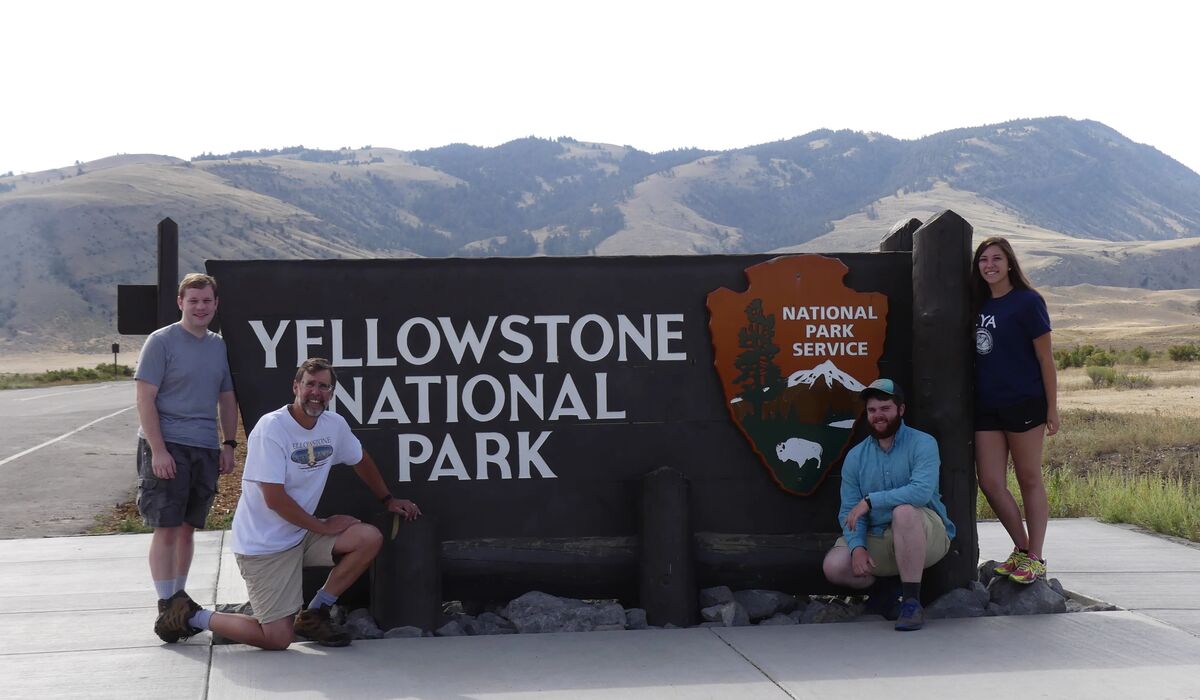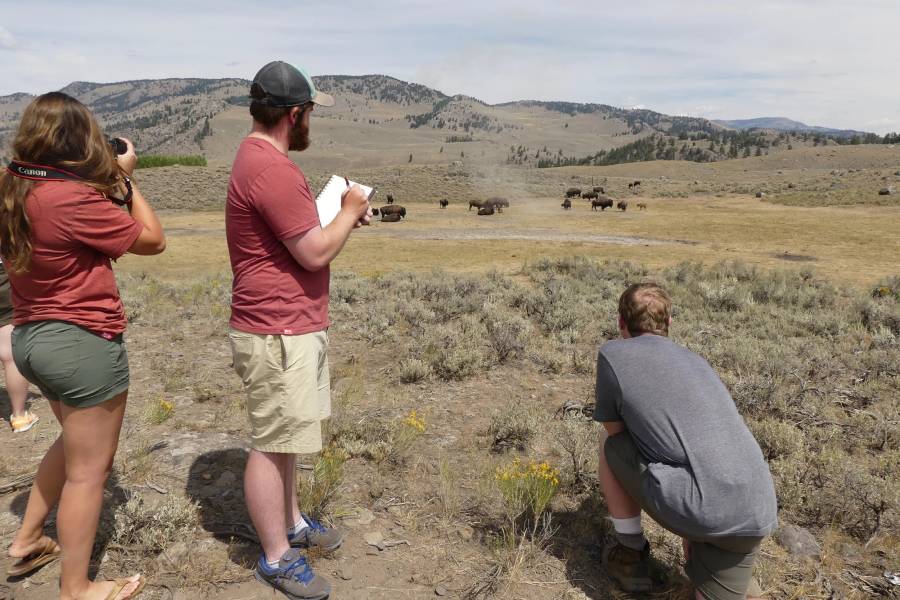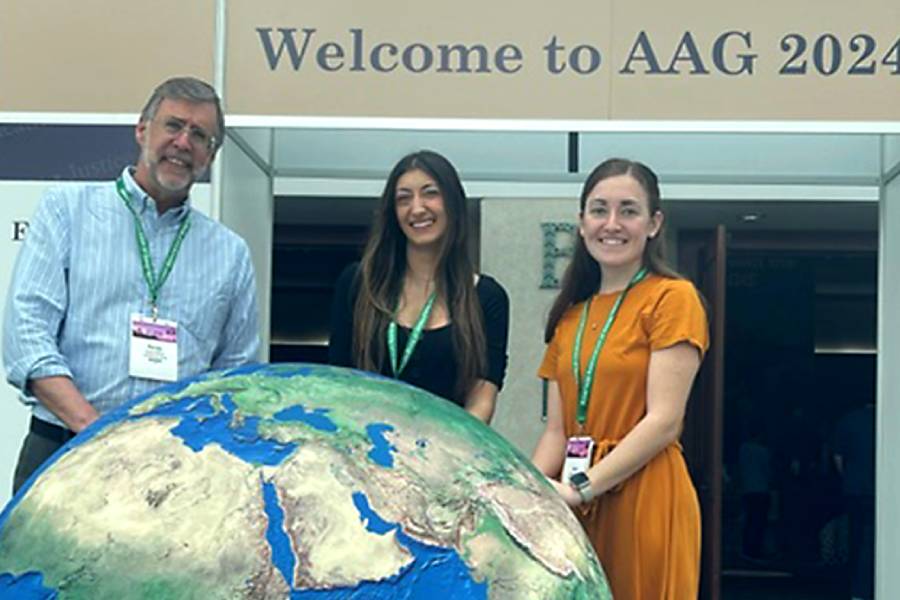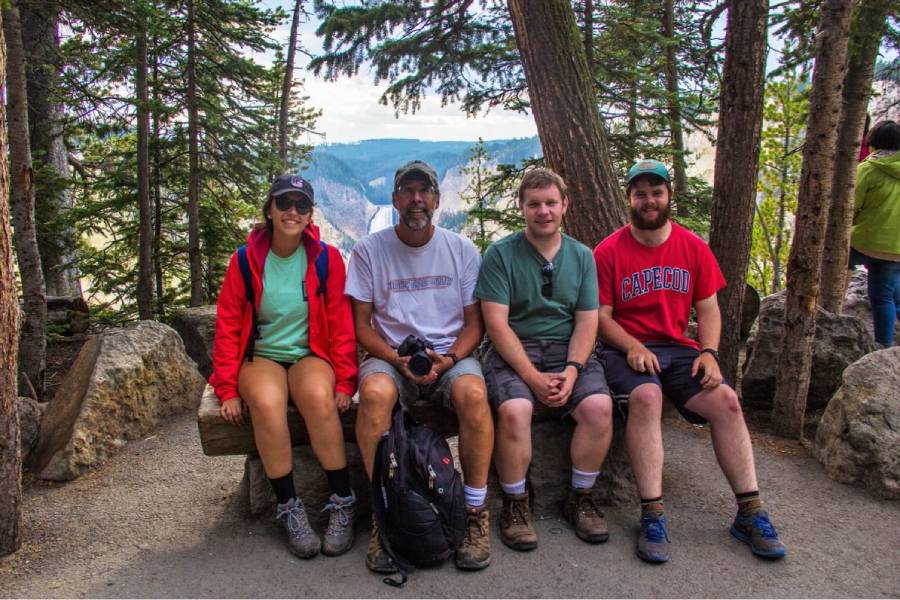
Through first-hand experiences, faculty share knowledge and skills with students, empowering them to make an impact on important issues in society.
Often at the center of discussions on public land and environmental issues, Environmental Studies Prof. Randall Wilson P’20 found Yellowstone National Park to be a fascinating place to conduct a place-based study about the legacy of the national park in American society. With students assisting in his research and using the enduring skills and knowledge they gain for academic and professional pursuits, Wilson endeavors to show students how their research can be shared beyond academia. Wilson’s newest book, “A Place Called Yellowstone,” brings his research and the contributions by his students to a wider audience,
When Wilson wrote his first book in 2014, “America’s Public Lands: From Yellowstone to Smokey Bear and Beyond,” he noticed that no matter what topic he researched—from endangered species protection to the rise of nature tourism—everything seemed to connect back to Yellowstone. Since its establishment as a national park in 1872, Yellowstone has functioned as a place from which environmental issues take their root before spreading outward to the rest of the country. This influence may stem in part from the fact that Yellowstone and other national parks serve as one of the few entities in which political and ideological tensions seem to melt away in the face of preserving natural beauty.

Through storytelling within his new book published by Counterpoint, he covers pertinent topics ranging from Indigenous land dispossession to the 1988 wildfires to the reintroduction of the wolf population. These stories connect to the legacy the park carries in shaping society’s view of nature.
“Yellowstone’s significance as a special place in U.S. history comes in part from the amazing events that happened there—from the creation of the world’s first national park, to the very first effort to save an endangered species (the plains bison), to the discovery of bacteria that made DNA replication possible,” Wilson said. “But it also comes from the powerful first-hand experience of visitors, who then come back home and share their new understandings of the natural world.”
Included among that group of visitors are Wilson’s own students at Gettysburg. Wilson incorporates his research and projects into his classes, giving his students an opportunity to experience Yellowstone’s important impact on society. “America’s Public Lands” was originally written for his Environmental Policy class when they study natural resources, and he consistently finds ways to bring Yellowstone into his Environmental Science and Society class, such as discussing Indigenous issues related to land and environmental conservation through bison management. Currently, Wilson is looking to develop a course exclusively on Yellowstone, similar to the First-Year Seminar on public lands he previously taught.

Empowered by the knowledge and problem-solving skills gained in Wilson’s classes, Gettysburg students have gone on to present their work at national conferences. In April 2024, environmental studies and political science double major Alyssa Papantonakis ’24 presented a comparative examination of wolf restoration efforts in the United States, including Yellowstone and France, at the American Association of Geographers (AAG). A co-authored version of the project by Wilson and Papantonakis will soon be published as a chapter in a forthcoming book on national parks by Palgrave Macmillan press.
“Having Randy as my advisor really shaped my Gettysburg experience, and I don’t think it would have been the same otherwise,” said Papantonakis, who is currently pursuing a master’s degree in urban and environmental planning at MIT. “I always knew I could go to him to get honest advice, which really helped guide me through my coursework during undergrad and applications heading into grad school.”
Wilson wants students to understand the topics and issues surrounding national parks firsthand, and thanks to endowed funding in environmental studies, he has been able to take students to Yellowstone National Park on a regular basis to conduct research. Since 2004, he has also taught a field course in Colorado each summer, one of Gettysburg’s only consistent field course offerings. During these ventures, Wilson has given students the opportunity to not only add research findings to his publications, but also develop ideas for their own senior theses.

Katerina Krohn ’17 joined Wilson on one such expedition to Yellowstone in 2016 for her senior capstone on the accessibility of national parks, using Yellowstone as a case study. She presented her work at the annual meeting of the AAG in Boston, Massachusetts, in the spring of 2017 alongside other environmental studies honors students. Krohn’s project received special recognition from the Disability Studies Research Group of the AAG.
“It was awesome to combine some of my research interests and work with the research he was doing,” said Krohn. “It was the epitome of the Gettysburg experience—getting to combine your interests with a professor’s research and having great memories of a fully in-depth research experience.”
Currently working as a prosecutor in Jacksonville, Florida, Krohn’s experience working alongside Wilson gave her skills like communication and adaptability to become an advocate for those impacted by crime in the courtroom. She uses those enduring skills to investigate and break down complicated cases in a way that is understandable and accessible to the public.
“It’s not just understanding natural science; it’s being able to communicate it and the difference that you can make in society,” said Wilson. “Making the world a better place often is not just holding all that information in but sharing it with the wider world.”
Inspire change alongside Gettysburg's first-class faculty today.
Related Links:
External Links:
By Katie Lauriello ’25
Photos provided by Randall Wilson, Alyssa Papatonakis ’24, Sam Donnelly ’17
Posted: 12/17/24